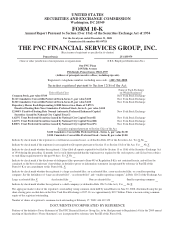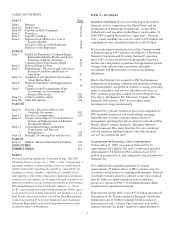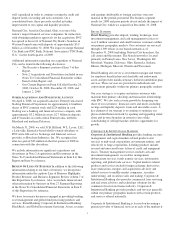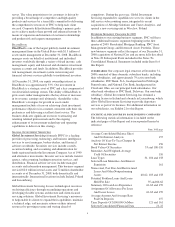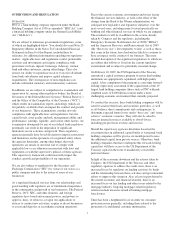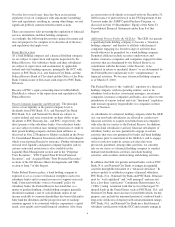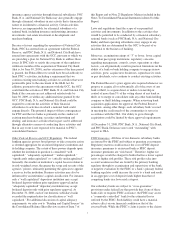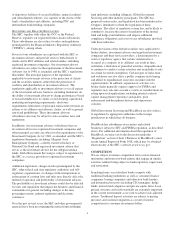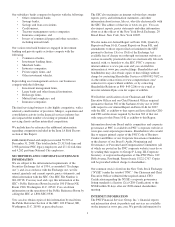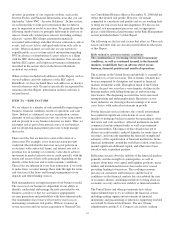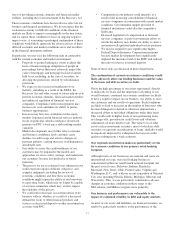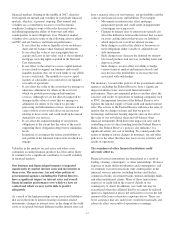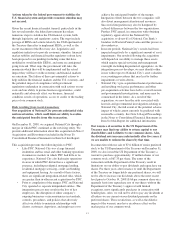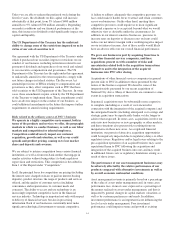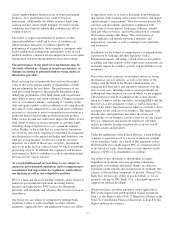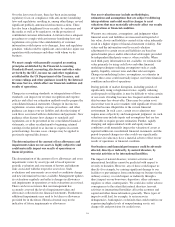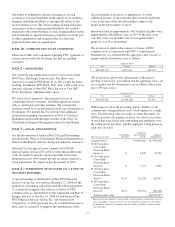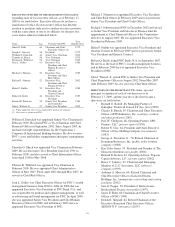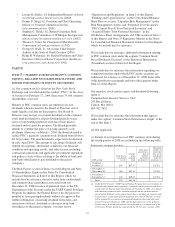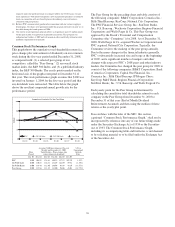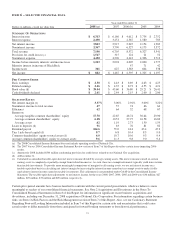PNC Bank 2008 Annual Report Download - page 15
Download and view the complete annual report
Please find page 15 of the 2008 PNC Bank annual report below. You can navigate through the pages in the report by either clicking on the pages listed below, or by using the keyword search tool below to find specific information within the annual report.ways of providing economic stimulus and financial market
stability, including the recent enactment of the Recovery Act.
These economic conditions have had an adverse effect on our
business and financial performance. We do not expect that the
weakened economy or difficult conditions in the financial
markets are likely to improve meaningfully in the near future,
and we expect those conditions to have an ongoing negative
impact on us. A worsening or prolonged continuation of these
conditions would likely aggravate the adverse effects of these
difficult economic and market conditions on us and on others
in the financial institutions industry.
In particular, we may face the following risks in connection
with the current economic and market environment:
• Proposals to permit bankruptcy courts to adjust the
terms of home mortgage obligations of people in
proceedings before them may adversely impact the
value of mortgages and mortgage-backed securities
held by us, including, in the case of securities, by
affecting the protections offered by subordination
provisions.
• We expect to face increased regulation of our
industry, including as a result of the EESA, the
Recovery Act and other current or future initiatives to
provide economic stimulus, financial market stability
and enhanced regulation of financial services
companies. Compliance with such regulation may
increase our costs and limit our ability to pursue
business opportunities.
• Investors may have less confidence in the equity
markets in general and in financial services industry
stocks in particular, which could place downward
pressure on PNC’s stock price and resulting market
valuation.
• Market developments may further affect consumer
and business confidence levels and may cause
declines in credit usage and adverse changes in
payment patterns, causing increases in delinquencies
and default rates.
• Our ability to assess the creditworthiness of our
customers may be impaired if the models and
approaches we use to select, manage, and underwrite
our customers become less predictive of future
behaviors.
• The process we use to estimate losses inherent in our
credit exposure requires difficult, subjective, and
complex judgments, including the review of
economic conditions and how these economic
conditions might impair the ability of our borrowers
to repay their loans, which may no longer be capable
of accurate estimation, which may, in turn, impact
the reliability of the process.
• We could suffer decreases in customer desire to do
business with us, whether as a result of a decreased
demand for loans or other financial products and
services or decreased deposits or other investments in
accounts with PNC.
• Competition in our industry could intensify as a
result of the increasing consolidation of financial
services companies in connection with current market
conditions. Governmental support provided to
financial institutions could alter the competitive
landscape.
• Increased regulation of compensation at financial
services companies as part of government efforts to
reform the industry may hinder our ability to attract
and retain well-qualified individuals in key positions.
• We may be required to pay significantly higher
Federal Deposit Insurance Corporation premiums
because market developments have significantly
depleted the insurance fund of the FDIC and reduced
the ratio of reserves to insured deposits.
Some of these risks are discussed in more detail below.
The continuation of current recessionary conditions would
likely adversely affect our lending businesses and the value
of the loans and debt securities we hold.
Given the high percentage of our assets represented, directly
or indirectly, by loans and the importance of lending to our
overall business, continued recessionary conditions are likely
to have a negative impact on our business, our ability to serve
our customers and our results of operations. Such conditions
are likely to lead to increases in the number of borrowers who
become delinquent or default or otherwise demonstrate a
decreased ability to meet their obligations under their loans.
This would result in higher levels of non-performing loans,
net charge-offs, provision for credit losses and valuation
adjustments on loans held for sale. The value to us of other
assets such as investment securities, most of which are debt
securities or represent securitizations of loans, similarly would
be negatively impacted by widespread decreases in credit
quality resulting from a weak economy.
Our regional concentration makes us particularly at risk
for economic conditions in our primary retail banking
footprint.
Although many of our businesses are national and some are
international in scope, our retail banking business is
concentrated within our retail branch network footprint (for
the past several years, Delaware, Indiana, Kentucky,
Maryland, New Jersey, Ohio, Pennsylvania, Virginia and
Washington, D.C., and, with our recent acquisition of National
City, now including Florida, Illinois, Michigan, Missouri and
Wisconsin). Thus, we are particularly vulnerable to adverse
changes in economic conditions in these states or the
Mid-Atlantic and Midwest regions more generally.
Our business and performance are vulnerable to the
impact of continued volatility in debt and equity markets.
As most of our assets and liabilities are financial in nature, we
tend to be particularly sensitive to the performance of the
11


